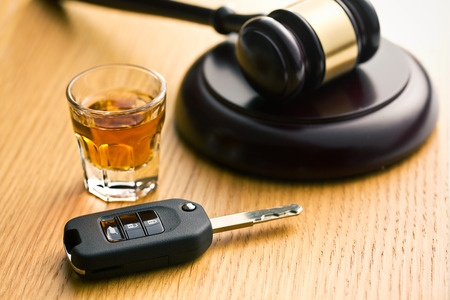BAC Testing of DUI Suspects – A U.S. Supreme Court Opinion
January 18, 2017 | Category: DUI Accidents, Personal Injury | ShareEvery year DUIs cause unnecessary injury and death to non-drinking drivers and passengers. According to MADD (Mothers Against Drunk Driving) in the last year:
- Drunk driving fatalities (.08 BAC or higher): 797 representing 0.27% of all total traffic deaths, a 14.8% increase from last year.
- DUI arrests: 31,783
- DUI convictions: 26,291
- 3 time offenders: 113,076
- 5 time offenders: 11,681
 In order to protect the public, states have enacted sobriety tests to get DUI suspects off our roads. However, these tests have become a major problem for the criminal justice system, according to Responsibility.org, because of sobriety test refusals. There are many DUI suspects refusing to answer questions, perform standardized field sobriety tests (SDSTs), or provide breath samples. Responsibility.org says that the BAC (blood alcohol concentration) test refusals are particularly common when dealing with repeat offenders.
In order to protect the public, states have enacted sobriety tests to get DUI suspects off our roads. However, these tests have become a major problem for the criminal justice system, according to Responsibility.org, because of sobriety test refusals. There are many DUI suspects refusing to answer questions, perform standardized field sobriety tests (SDSTs), or provide breath samples. Responsibility.org says that the BAC (blood alcohol concentration) test refusals are particularly common when dealing with repeat offenders.
Two cases went before the U. S. Supreme Court which wrote its opinion in June 2016 that the states and the Federal Government have a paramount interest in preserving public highway safety and a compelling interest in creating a deterrent to drunken driving, which is a lead cause of fatalities and injuries. However, while breath tests do not breach privacy concerns, blood tests are significantly more intrusive and require a warrant in order to be conducted. Motorists may not be criminally punished for refusing to submit to a blood test.
State laws regarding BAC testing
Every state has laws prohibiting motorists from driving with a BAC which exceeds a specific state-imposed level. This is typically determined through a direct analysis of a breathalyzer test or blood sample. The states also have “implied consent laws” which require drivers to submit to BAC tests. Florida’s law requires drivers to submit to a blood, urine or breath test if asked by an officer when being pulled over. A refusal will result in the person’s driver’s license being suspended immediately for one year. The specific Florida law says:
“Any person who accepts the privilege extended by the laws of this state of operating a motor vehicle within this state is, by so operating such vehicle, deemed to have given his or her consent to submit to an approved chemical test or physical test including, but not limited to, an infrared light test of his or her breath for the purpose of determining the alcoholic content of his or her blood or breath if the person is lawfully arrested for any offense allegedly committed while the person was driving or was in actual physical control of a motor vehicle while under the influence of alcoholic beverages.”(316.1932)
“Having a Florida driver’s license is considered a privilege. This privilege comes with responsibility. It is the responsibility of motorists of any vehicle to not drive drunk or impaired by drugs. We at Spivey Law Firm, Personal Injury Attorneys, P.A., have personally seen the results of drunk-driver accidents in the changed lives of our clients. Should motorists drink, they must choose a designated driver or make other arrangements. Never get behind the wheel and drive,” said Hurt By Drunk Driver Attorney, Randall Spivey. “If you or a loved one has been injured in a drunk-driving accident, contact our experienced team. We are here to assist you through this difficult time.”
Hurt By Drunk Driver Attorney, Randall L. Spivey is a Board Certified Trial Attorney – the highest recognition for competence bestowed by the Florida Bar and a distinction earned by just one (1%) percent of Florida attorneys. He has handled over 2,000 personal injury and wrongful death cases throughout Florida. For a free and confidential consultation to discuss your legal rights, contact the Spivey Law Firm, Personal Injury Attorneys, P.A., in Lee County at 239.337.7483 or toll free at 1.888.477.4839,or by email to Randall@SpiveyLaw.com. Visit SpiveyLaw.com for more information. You can contact Spivey Law Firm, Personal Injury Attorneys, P.A.in Charlotte County at 941.764.7748 and in Collier County 239.793.7748.

